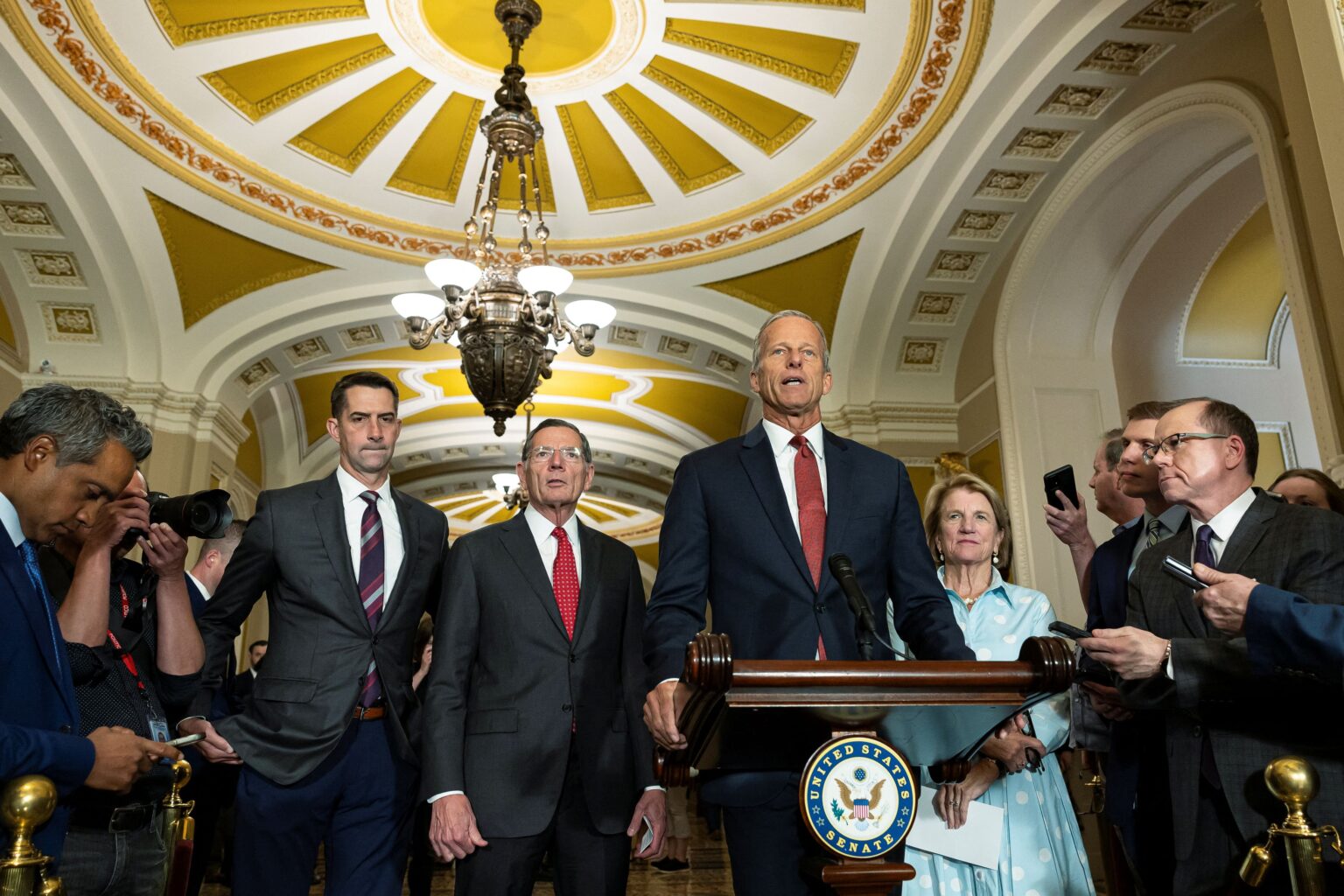Growing Internal Tensions Within the GOP Over Healthcare Funding Cuts in Major Legislation
Amidst mounting disagreements among Republican members, concerns are rising over the potential impact of President Donald Trump’s expansive tax and immigration reform package on healthcare funding. As the GOP approaches a critical legislative deadline, divisions threaten to complicate the passage of the proposed bill.
The Ambitious GOP Legislative Agenda and Its Financial Implications
The Republican-controlled Congress aims to advance the so-called “One Big Beautiful Bill Act,” a comprehensive $3.3 trillion package. This legislation seeks to extend existing tax cuts, introduce new tax incentives, strengthen immigration enforcement, and initiate the construction of Trump’s proposed “Golden Dome” missile defense system, among other initiatives. The goal is to have this sweeping bill reach President Trump’s desk by Independence Day.
To finance these initiatives, GOP leaders have proposed significant reductions in federal healthcare programs, notably Medicaid and SNAP (Supplemental Nutrition Assistance Program). These cuts are designed to offset the bill’s hefty price tag but have sparked fierce opposition within the party.
Resistance from Senate Republicans and the Future of the Legislation
The proposed Medicaid reductions have ignited a revolt among some Senate Republicans, with several expressing reservations about the potential consequences. Meanwhile, House members are increasingly wary of the legislative direction, especially given the unresolved status of the Senate’s version of the bill. If the Senate approves its version, the legislation will need to return to the House for final approval, adding another layer of complexity.
Currently, Senate lawmakers are racing against time to finalize their version of the bill, which is being drafted under intense pressure to deliver economic benefits and political gains. However, the process is fraught with internal disagreements and procedural hurdles.
The Political and Economic Risks of the GOP’s Bold Strategy
Senator Jim Justice (R-West Virginia) described the effort as a “massive gamble,” emphasizing that the legislation represents a bold move by the administration to steer the nation toward a more robust economic footing. Central to the Senate’s approach is the attempt to impose strict limits on Medicaid provider taxes-fees that states levy on healthcare providers to draw additional federal funds. Some Republicans see this as a tool to reduce benefits for immigrants, while others worry about the financial stability of rural hospitals heavily dependent on Medicaid revenue.
However, the Senate parliamentarian recently ruled that these provider tax provisions violate the rules governing budget reconciliation-a legislative process Republicans are using to bypass potential Democratic filibusters and pass the bill with a simple majority. This ruling has temporarily stalled the GOP’s legislative momentum.
Democratic Opposition and the Uncertain Path Forward
Democrats have uniformly opposed the bill in the House and are expected to oppose it in the Senate as well. While Senate leaders have not set a firm date for the initial procedural votes, they have indicated plans to begin debate over the weekend. The parliamentary ruling has significantly slowed the GOP’s legislative progress, casting doubt on the bill’s immediate prospects.
The legislation’s projected increase in the national debt has become a contentious issue. Originally, many conservative Republicans pledged that the bill would be deficit-neutral, but recent estimates suggest the measure could add approximately $250 billion to the debt-raising alarms among fiscal conservatives. With the national debt already surpassing $36 trillion, concerns about fiscal responsibility are intensifying.
The Political Stakes and President Trump’s Advocacy
In a rally at the White House, President Trump emphasized the importance of passing the legislation, asserting that signing it into law would fulfill many of his campaign promises for 2024. Surrounded by supporters from the service industry and cabinet officials, Trump framed the bill as essential for national defense and economic security.
He also directly addressed internal GOP dissent, calling out lawmakers who oppose the bill and warning of political repercussions for those who stand in its way. Trump highlighted specific members, such as Rep. Rob Bresnahan (R-Pennsylvania), praising their efforts and suggesting that opposition could have electoral consequences.
Conclusion: Navigating a Complex Legislative Landscape
As the GOP grapples with internal disagreements and procedural obstacles, the future of this comprehensive legislative package remains uncertain. The stakes are high, with implications for the nation’s fiscal health, healthcare system, and political landscape. The coming days will be critical in determining whether the bill can overcome opposition and be enacted into law, fulfilling the GOP’s ambitious legislative agenda.

